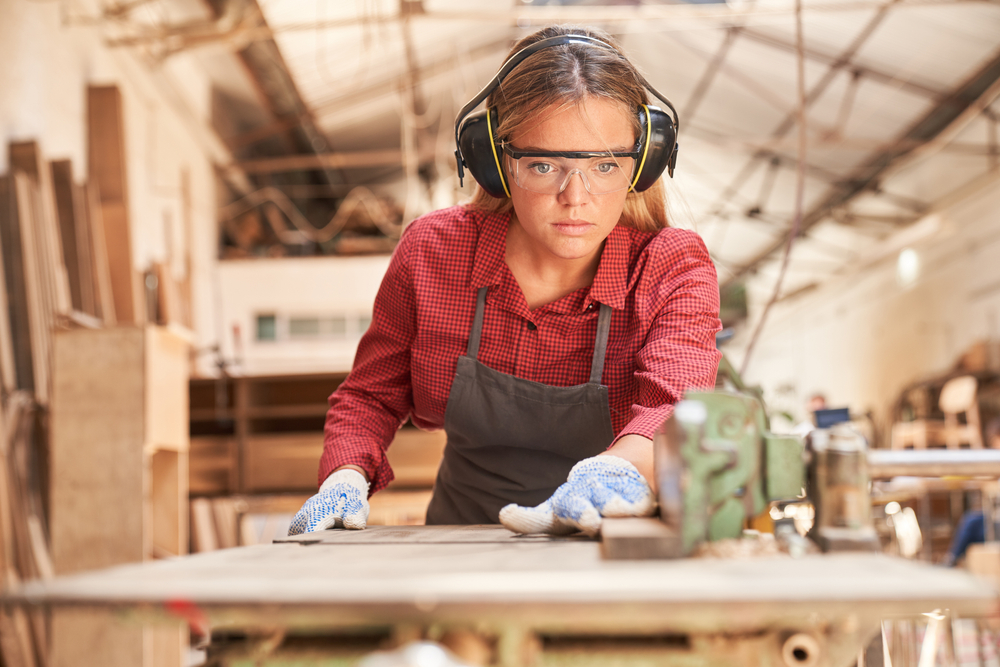Hearing protection plays a critical role in safeguarding your ears against harmful noise levels, whether at work, concerts, or even while doing DIY projects at home. However, several factors can interfere with the effectiveness of your hearing protection, leaving you exposed to potential risks. In order to understand and effectively maximize the benefits of your ear protection, it’s essential to understand these issues.
Why hearing protection fails: common circumstances
Unexpected problems will arise even when you follow best practices. You use your earmuffs faithfully at work, use earplugs at concerts, and stay away from noisy situations whenever possible. Yet, some variables can still interfere with your hearing protection’s efficiency. Luckily, you can ensure the protection of your hearing by becoming aware of these common issues and making informed adjustments.
1. Specific circumstances call for specific types of hearing protection
The effectiveness of hearing protection can be decreased by picking the wrong type for the given situation.
There are generally two main categories of hearing protection:
- Earplugs: Small, flexible inserts that seat snugly inside the ear canal.
- Earmuffs: Larger, headphone-like device that goes over the whole ear.
Each type has its appropriate use case:
- In situations like a construction site where noise is periodic and you might need to regularly remove your hearing protection, earmuffs are the more effective choice.
- Locations with a constant noise threshold, like a factory floor or the cabin of an airliner, are the best times to utilize earplugs.
Earmuffs are easier to manage when there is a need to frequently put on and remove your hearing protection. However, earplugs, particularly disposable ones, can be easily misplaced, leaving you exposed when noise levels rise again. Choosing the correct hearing protection for your requirements is the first step toward protecting your hearing effectively.
2. Fit and function are affected by anatomy
Every individual’s ears are unique, meaning that not all hearing protection devices will fit everybody equally well. Basic earplugs and earmuffs are usually designed for average dimensions, but your ear anatomy may require a more individualized solution.
- Larger ear structures: Larger ears can make earmuffs uncomfortable, causing gaps in the seal that allow noise to enter.
- Smaller ear canals: If you have tight ear canals, standard-sized earplugs may not create an effective seal, decreasing their noise-blocking capabilities.
If your hearing protection isn’t fitting correctly, you could become discouraged and choose to quit using them altogether which can imperil your hearing. If you spend substantial time in loud environments, consider investing in custom-molded earplugs or professionally fitted earmuffs. Choosing to go with a more customized approach will offer you greater comfort and effectiveness, keeping your hearing safe in any scenario.
3. Ignoring routine maintenance and replacement
In order to remain effective, hearing protection devices need to be correctly maintained just like any other devices do. Wear and tear, incorrect cleaning, and missing replacement schedules can all jeopardize their ability to protect your ears.
The following are a few tips on how to maintain hearing protection:
- Clean Properly: Earplugs and earmuffs come into contact with earwax and other debris, which can build up over time. In order to safely and effectively clean your earplugs or earmuffs, consult the manufacturer-recommended cleaning instructions.
- Inspect for Damage: Regularly inspect the elastic band on earmuffs. A loose or stretched band can reduce their snug fit, lowering their noise-blocking capacity.
- Replace Cushions: Over time, earmuff cushions can lose their pliability. In order to maintain a tight seal, replace the cushions when needed.
Neglecting these simple maintenance tasks can render your hearing protection less effective or even useless. In order to ensure consistent and efficient performance, and to extend their lifespan, it’s essential to keep these routine maintenance routines.
The advantage of a hearing specialist
Schedule an appointment with us for a consultation if you think that your ear protection may not be doing the job. We can check your current devices, recommend alternatives, and even provide custom solutions tailored to your specific requirements.
Keeping your hearing safe is a commitment that lasts a lifetime and it’s essential that you do it with the proper tools. By addressing these common challenges, you can confidently protect your ears from damaging noise and preserve your hearing for years to come.
[blogcta]

